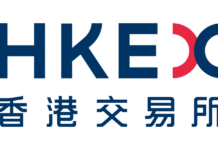The Brazilian corporate credit market is becoming increasingly complex, and active bottom-up selection is essential for identifying winners and losers in this shifting environment.
That’s according to a report from Ninety One’s Alan Siow, co-head of EM corporate debt, and Kevan Flynt Salisbury, analyst.

The pair identified four themes that are shaping Brazil’s market landscape: The impact of tariffs on corporate profitability; cheap local financing reshaping the market; concerns about government intervention; and sustainability and green commodities.
“Our recent visit to Brazil underscored the importance of understanding the dynamics of local markets when assessing the future prospects of domestic corporates. There will be winners and losers, and a rigorous assessment of underlying fundamentals is imperative,” the pair noted.
Brazilian companies, especially commodity exporters, are facing pressure from subsidised Chinese exports, particularly steel. However, Brazil’s government is cautious about raising tariffs more broadly due to concerns about inflation.
Additionally, local investors are showing strong demand for Brazilian corporate debt due to favourable domestic fundamentals, allowing large companies to secure cheaper financing in local currency compared to global USD markets, which has led to a reduction in USD-denominated bond issuance.
There are also concerns about government intervention, particularly under President Lula da Silva. The pair suggest investors monitor companies that might be impacted by government influence and seek opportunities that are less exposed to political risks, or may benefit from government support.
Lastly, Brazil is emerging as a leader in green commodities, particularly ethanol and lithium. Companies like Raizen Fuels are positioned to benefit from Brazil’s large and cost-effective ethanol production, while Brazil’s lithium production, buoyed by competitive costs and high-quality ore deposits, are making it attractive for integration into global supply chains, especially for electric vehicle (EV) batteries.
©Markets Media Europe 2024
©Markets Media Europe 2025


























